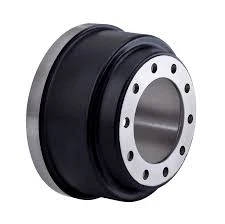
-
 Afrikaans
Afrikaans -
 Albanian
Albanian -
 Amharic
Amharic -
 Arabic
Arabic -
 Armenian
Armenian -
 Azerbaijani
Azerbaijani -
 Basque
Basque -
 Belarusian
Belarusian -
 Bengali
Bengali -
 Bosnian
Bosnian -
 Bulgarian
Bulgarian -
 Catalan
Catalan -
 Cebuano
Cebuano -
 Corsican
Corsican -
 Croatian
Croatian -
 Czech
Czech -
 Danish
Danish -
 Dutch
Dutch -
 English
English -
 Esperanto
Esperanto -
 Estonian
Estonian -
 Finnish
Finnish -
 French
French -
 Frisian
Frisian -
 Galician
Galician -
 Georgian
Georgian -
 German
German -
 Greek
Greek -
 Gujarati
Gujarati -
 Haitian Creole
Haitian Creole -
 hausa
hausa -
 hawaiian
hawaiian -
 Hebrew
Hebrew -
 Hindi
Hindi -
 Miao
Miao -
 Hungarian
Hungarian -
 Icelandic
Icelandic -
 igbo
igbo -
 Indonesian
Indonesian -
 irish
irish -
 Italian
Italian -
 Japanese
Japanese -
 Javanese
Javanese -
 Kannada
Kannada -
 kazakh
kazakh -
 Khmer
Khmer -
 Rwandese
Rwandese -
 Korean
Korean -
 Kurdish
Kurdish -
 Kyrgyz
Kyrgyz -
 Lao
Lao -
 Latin
Latin -
 Latvian
Latvian -
 Lithuanian
Lithuanian -
 Luxembourgish
Luxembourgish -
 Macedonian
Macedonian -
 Malgashi
Malgashi -
 Malay
Malay -
 Malayalam
Malayalam -
 Maltese
Maltese -
 Maori
Maori -
 Marathi
Marathi -
 Mongolian
Mongolian -
 Myanmar
Myanmar -
 Nepali
Nepali -
 Norwegian
Norwegian -
 Norwegian
Norwegian -
 Occitan
Occitan -
 Pashto
Pashto -
 Persian
Persian -
 Polish
Polish -
 Portuguese
Portuguese -
 Punjabi
Punjabi -
 Romanian
Romanian -
 Russian
Russian -
 Samoan
Samoan -
 Scottish Gaelic
Scottish Gaelic -
 Serbian
Serbian -
 Sesotho
Sesotho -
 Shona
Shona -
 Sindhi
Sindhi -
 Sinhala
Sinhala -
 Slovak
Slovak -
 Slovenian
Slovenian -
 Somali
Somali -
 Spanish
Spanish -
 Sundanese
Sundanese -
 Swahili
Swahili -
 Swedish
Swedish -
 Tagalog
Tagalog -
 Tajik
Tajik -
 Tamil
Tamil -
 Tatar
Tatar -
 Telugu
Telugu -
 Thai
Thai -
 Turkish
Turkish -
 Turkmen
Turkmen -
 Ukrainian
Ukrainian -
 Urdu
Urdu -
 Uighur
Uighur -
 Uzbek
Uzbek -
 Vietnamese
Vietnamese -
 Welsh
Welsh -
 Bantu
Bantu -
 Yiddish
Yiddish -
 Yoruba
Yoruba -
 Zulu
Zulu
Cost Analysis for Converting Drum Brakes to Disc Brakes in Vehicles
Drum to Disc Brake Conversion Understanding the Costs
When it comes to automotive upgrades, one of the most impactful changes drivers can make is the conversion from drum brakes to disc brakes. While drum brakes have served their purpose for many years, disc brakes offer enhanced performance and safety features that appeal to car enthusiasts and everyday drivers alike. However, before undertaking this upgrade, it's crucial to understand the costs involved in this conversion.
The Basics of Drum and Disc Brakes
Drum brakes consist of a cylindrical drum that rotates with the wheel. Brake shoes press against the inside of the drum when the brake is engaged, creating friction that slows down or stops the vehicle. on the other hand, disc brakes use brake pads that press against a flat disc, providing superior stopping power and heat dissipation.
Benefits of Disc Brakes
1. Better Performance Disc brakes provide more consistent braking performance, especially under heavy use or adverse weather conditions. This is particularly important for vehicles that are often loaded or driven in challenging environments. 2. Heat Dissipation Disc brakes have a greater ability to dissipate heat, reducing the risk of brake fade—a phenomenon where brakes lose effectiveness after prolonged use due to overheating.
3. Easier Maintenance With fewer components and easier access, disc brakes can be simpler to maintain than drum brakes, which can often be more cumbersome to service due to their design.
Cost Factors of Conversion
drum to disc brake conversion cost

When considering the conversion from drum to disc brakes, several factors influence the total cost of the project
1. Parts Costs The primary expense in this conversion is the cost of parts. This includes the new disc brakes, calipers, rotors, and brake pads. Depending on the make and model of the vehicle, these parts can range from $300 to over $1,500.
2. Labor Costs If you’re not comfortable performing the conversion yourself, you will need to factor in labor costs. Hiring a professional mechanic can add $100 to $500 to your total expenses, depending on their hourly rate and the complexity of the conversion.
3. Additional Components Sometimes, converting from drum to disc brakes may require additional components, such as new brake lines, master cylinders, or even new wheels if the existing ones are incompatible with the larger discs. This can significantly increase the overall cost.
4. Vehicle Type and Brand The type of vehicle and its brand can play a crucial role in determining the cost. For example, common vehicles may have readily available aftermarket parts that are less expensive, while specialized or older cars might incur higher costs due to limited availability.
5. DIY vs. Professional Installation If you have the mechanical skills to do the conversion yourself, you can save a significant amount on labor costs. However, it’s essential to ensure you have the right tools and knowledge to complete the installation safely and correctly.
Conclusion
Converting from drum brakes to disc brakes can undoubtedly enhance your vehicle’s performance and safety. However, potential costs can vary widely based on parts, labor, and vehicle-specific factors. On average, you might expect to spend anywhere from $500 to $2,000 for a complete conversion. Before making a decision, it’s advisable to obtain quotes from different suppliers and mechanics, assess your comfort level with DIY projects, and consider the long-term benefits of enhanced braking performance. Ultimately, investing in disc brakes not only improves your vehicle’s safety but can also enhance your overall driving experience.
-
What Are Drum BrakesNewsJul.07,2025
-
Understanding Brake Drum MaterialNewsJul.07,2025
-
Semi-Trailer Brake Drum: A Key Component for Extreme Loads and Long-Distance TransportNewsJul.07,2025
-
Drum Brake Pads for SaleNewsJul.07,2025
-
Brake Drums for SaleNewsJul.07,2025
-
Brake Drum ManufacturerNewsJul.07,2025
-
Aluminum Brake Drums: The Future of High-Performance CarsNewsJul.07,2025
